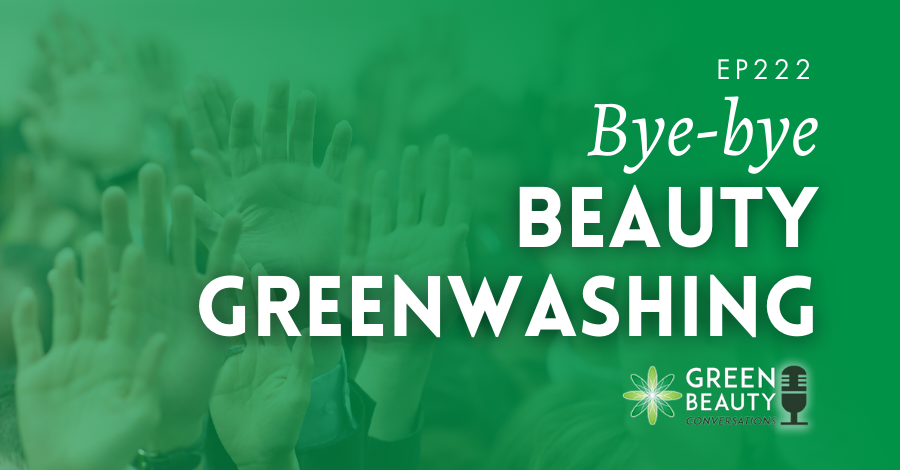Imagine a world where greenwashing does not exist.
Or let’s go a step further, imagine a world where greenwashing doesn’t exist in the cosmetics industry.
This could potentially be the future as legislation emerges around the world to hold companies and organizations accountable for greenwashing.
Last week, we interviewed Priscilla Rolvers of Green Cosmetics Revolution about the major regulatory changes in the EU with the introduction of the new Green Washing Directive. Don’t miss this mind-blowing discussion that could change the way we all buy our favorite beauty products.
In this week’s episode of the Green Beauty Conversations podcast, Lorraine Dallmeier, Chartered Environmentalist, Biologist and CEO of Formula Botanica now delves into the issue of greenwashing in the beauty industry and explores how emerging legislation is going to make companies responsible for their environmental allegations. .

“Imagine a world where greenwashing does not exist in the cosmetics industry. This could potentially be the future as legislation emerges around the world to hold companies and organizations accountable for greenwashing.”
— Lorraine Dallmeier, CEO of Formula Botanica
Basic Takeaways
- Understanding greenwashing: Greenwashing is the deceptive practice where companies falsely promote their products as environmentally friendly. This may include using non-recyclable packaging or ingredients that are not sourced from sustainable materials, while marketing their products as environmentally friendly.
- Legislative changes: The EU’s Greenwashing Directive aims to curb these deceptive practices by imposing strict regulations on how companies can market their environmental impact. This directive requires the 27 EU member states to create national laws enforcing these regulations, with fines of up to 4% of annual turnover for non-compliance.
- Exceptions for very small businesses: Interestingly, the EU Directive exempts very small businesses—those with fewer than 10 employees and less than €2 million in annual turnover. This exemption encourages small, innovative indie beauty brands to explore sustainable practices without the fear of heavy penalties. Larger brands are not afforded this leniency. They must tread carefully or face huge fines.
- Global impact: The ripple effect of the EU legislation is expected to affect global regulations, making it harder for major companies worldwide to make unsubstantiated green claims. This change will likely lead to more careful and genuine sustainability claims from beauty giants. Lorraine predicts this will lead to the beauty industry being more cautious about claims. And it will ultimately benefit consumers.
- Consumer role: While the new regulations are a step forward, consumers also play a critical role in holding brands accountable. By staying informed and choosing products that adhere to truly sustainable practices, consumers can drive change in the industry.
Thank you for joining us on this episode of the Formula Botanica Green Beauty Conversations podcast. If you enjoyed listening, please share, subscribe and review this episode on Apple Podcasts, Spotify the Youtube so that more people can enjoy the show. Don’t forget to follow and connect with us at Facebook and Instagram.
FREE FOUNDATION COURSE
How to become one
Organic skin care formula
FREE EDUCATION
How to become one
Organic skincare entrepreneur
Join over 100,000 other Formulators
FREE EDUCATION
How to become one
Organic skincare entrepreneur
Join over 100,000 other Formulators
Leave us a comment
Lorraine Dallmeier is a biologist, certified environmentalist, and CEO of Formula Botanica, the award-winning online organic cosmetics school. Read more about Lorraine and the Formula Botanica team.
